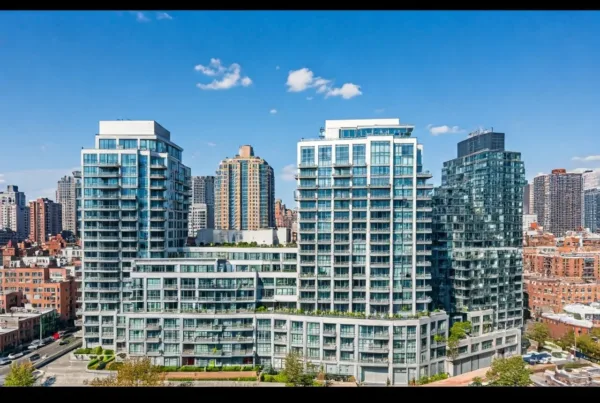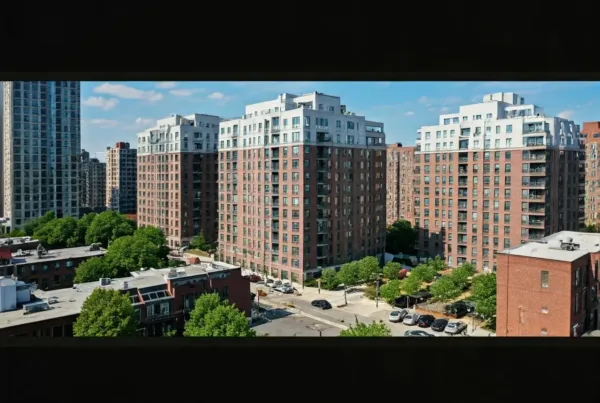Uncover the insider secrets to buying units as a first-time buyer that will save you time, money, and stress.
Table of Contents
Welcome to the exciting world of buying units! If you’re thinking about investing in a new home, you might be wondering what it means to buy units. In this article, we will explore everything you need to know about buying units for the first time and how to find the best home units for sale.
Buying a unit, like an apartment or a condo, can be a great investment. It’s often more affordable than a traditional house, and it can serve as a cozy place to live or even as a smart way to earn money. For many first-time buyers, this journey is not only about finding a place to stay but also about learning about what types of homes are out there.
Throughout this article, we will share essential tips and information that will help you feel confident in your choices. Whether you are curious about what an apt unit means or looking for the right unit to buy, we’ve got you covered. By the end, you’ll be ready to take your first steps into the world of homeownership with excitement and knowledge!
What is a Unit?
When we talk about a “unit” in real estate, we are usually referring to homes that are part of a larger building or complex. This can include different types of living spaces like apartments and condos. But what does the term “apt unit” mean? Simply put, an apt unit is just another way of saying an apartment. These homes are designed to fit many people in a smaller space. Understanding these terms is super important when you’re thinking about buying unit. Let’s break it down further.
Definition and Types
An apartment unit, or apt unit, is a private space within a building. Each unit usually has its own kitchen, bathroom, and living areas. You might have heard of other types of unit as well. Here are a few examples:
- Condominiums (Condos): These are similar to apartments, but the big difference is that you actually own a condo. When you buy a unit in a condo, you own the space inside it and share ownership of the building and grounds with other condo owners.
- Townhouses: These units look like small houses and often share one or two walls with another unit. You usually own both the inside and outside of the townhouse.
- Duplexes: A duplex is a building that contains two separate living units. Each unit might have its own entrance and yard.
These various types of units are popular options for many people because they often come with fewer maintenance responsibilities compared to whole houses. Each type offers unique features and benefits that appeal to different buyers.
Why Choose a Unit?
So, why would someone choose to buy a unit instead of a house? There are a few reasons for this. First, units can be smaller and often cost less than traditional houses. This makes them a great choice for first-time buyers or those on a budget. Many units are also located in cities where you can easily access public transportation and stores, making life more convenient.
Another reason people prefer buying units is the maintenance. When you live in a unit, the exterior maintenance and sometimes even landscaping are handled by a management team. This leaves you more time for fun activities, rather than mowing the lawn or fixing the roof.
Buying a unit can be an excellent option for many reasons, especially for those just starting out in homeownership. With so many choices available, units provide a blend of affordability and convenience that many find appealing.
Steps to Buy a Unit
Buying a unit can be exciting and fun! However, it can also be a bit confusing, especially if you are doing it for the first time. Here are some easy steps to help you understand how to buy units and make the process smoother.
Finding the Right Unit
The first step in buying a unit is to find the right one for you. You can start by searching online for home units for sale. There are many websites where you can see pictures and details about different units. This can help you get a good idea of what is available.
Another great way to find a unit is to work with a real estate agent. These are people who know a lot about buying units and can help you find what you’re looking for. They can also help you understand things better and make the process easier.
Financing Your Purchase
Once you find a unit you like, you will need to think about how to pay for it. This is where financing comes in. Start by saving money for a down payment. A down payment is a part of the total price that you pay upfront.
After saving, you might need a mortgage. A mortgage is a loan that helps you pay for your unit. Your bank or other lenders can help you with this. Remember, it’s important to understand how much money you can spend before making any big commitments.
Making an Offer
After you have found the perfect unit and sorted out your finances, it’s time to make an offer. This means you are telling the seller how much money you want to pay for their unit. A good offer is fair and based on the prices of similar units in the area.
If the seller likes your offer, they will accept it, and you can start the process of buying your new unit. If they don’t accept, don’t worry! You can negotiate and see if there is a better price for you both.
Understanding Condo Sponsor Units
When you think about buying a home, you might hear the term “condo sponsor unit.” But what does that mean? Let’s find out what a condo sponsor unit is and how it stands out compared to other types of units.
What is a Condo Sponsor Unit?
A condo sponsor unit is a type of unit in a condominium that is sold by the developer or the person who built the building. This is different from other units that might be sold by individual owners. The sponsor usually has many units to sell when the building is new. They help make it easier for first-time buyers who want to buy units in a newly built place.
So, when you decide to buy a condo sponsor unit, you are often getting a fresh start in a brand-new space! These units might come with special deals or discounts, making them attractive for first-time buyers.
Pros and Cons
Now, let’s talk about the pros and cons of buying a condo sponsor unit. It’s important to understand both sides before you decide.
| Tip | Description |
|---|---|
| Set a Budget | Determine how much you can afford to spend on buying units, including any additional costs like maintenance fees. |
| Research the Market | Look into different areas, property types, and pricing trends to find the best value for your investment. |
| Location Matters | Consider factors like proximity to amenities, transportation, and potential for future growth when choosing a location. |
| Get Pre-Approved | Obtain a mortgage pre-approval to show sellers that you are a serious buyer and to know your financing options. |
| Work with a Realtor | Partner with a real estate agent who has experience in buying units and can guide you through the process. |
| Inspect the Property | Hire a professional inspector to check for any issues or repairs needed before finalizing the purchase. |
| Review the Contract | Carefully read and understand the terms and conditions of the sales contract before signing to avoid any surprises. |
One big advantage is that these units are brand new. You may be one of the first people to live there! They also usually come with modern designs and new appliances, which can be really nice. Plus, since they are sold directly by the developer, the process can be more straightforward.
However, there can be some downsides. Sometimes, the prices for condo sponsor units can be higher than those for other units that are already lived in. Also, there could be issues that come up after moving in, like construction problems that still need to be fixed. It’s important to do your research and ask questions!
In summary, understanding what a condo sponsor unit is and knowing the pros and cons can help you make a smart choice when you’re ready to buy your unit.
Tips for First-Time Buyers
Before you dive into buying a unit, it’s super important to do your research. This means looking at the market and figuring out what kind of home units for sale are available. You should think about where you want to live, how much space you need, and what your budget is. Check out different neighborhoods and compare prices for similar units. Knowing what to expect can help you make a smarter choice.
Inspect Before You Buy
Another vital step is to inspect the unit before making a buy unit decision. A professional inspection can uncover issues that you may not see during a casual visit. This includes checking for problems with plumbing, electrical systems, or even hidden damages. It’s like having a superhero look at the unit to save you from nightmares later on. Don’t skip this step; it can save you a lot of time and money.
Understand the Costs
When buying a unit, you need to think about more than just the price tag. There are many costs involved in buying a unit, and understanding them can help you feel more prepared. Besides the amount you pay for the unit, consider other costs like closing fees, property taxes, and maybe even homeowners’ association fees. Knowing these costs will help you avoid surprises and keep your budget in check.
Summary
In this article about buying units, we covered many important things that first-time buyers should know. We started by explaining what it means to buy units, highlighting that home units for sale can be different types of homes, like apartments and condos. Understanding what does apt unit mean is essential because it helps buyers know what kind of spaces they are looking at.
We then walked through the steps of buying a unit. From finding the right unit to financing your purchase, every step is important. We discussed searching online listings and working with real estate agents, which are great ways to discover the best options. Making an offer was also emphasized, as it’s your chance to tell the seller what you’re willing to pay for the unit.
Another key point we touched on is understanding condo sponsor units. These units can be different from regular ones, and knowing their pros and cons can help buyers make informed choices about which unit to select. If you’re considering a condo sponsor unit, it’s good to weigh the benefits against any downsides.
Lastly, we provided some helpful tips for first-time buyers. Doing research, inspecting the unit before buying, and understanding all costs involved are crucial steps that can save you time and money in the long run. Buying unit can be exciting, and knowing these tips makes the process smoother!
FAQs
What is the difference between a unit and a house?
A unit, like an apartment or condo, is usually part of a bigger building. This means you might share walls with neighbors and have common areas like a lobby or a gym. A house, on the other hand, is a standalone building. You get your own yard and more privacy. So, when people say “buy units,” they often mean living in a place where they share some spaces with other people.
How long does it take to buy a unit?
The time it takes to buy a unit can vary, but on average, it can take a few months. First, you find the right home units for sale, which might take a few weeks. After that, you’ll make an offer and go through inspections. Once everything looks good, the closing process happens, which can take several weeks. So, all in all, it might take anywhere from one to three months or more!
Can kids help their parents choose a unit?
Begin your search and start earning cash back!
Absolutely! Kids can be a big help when it comes to buying a unit. They can give their opinion on how the place feels and whether they like the rooms. Kids might also know what kind of parks or schools are nearby, which is important for families. So, if your parents are looking to buy a unit, don’t hesitate to share your thoughts and ideas!







